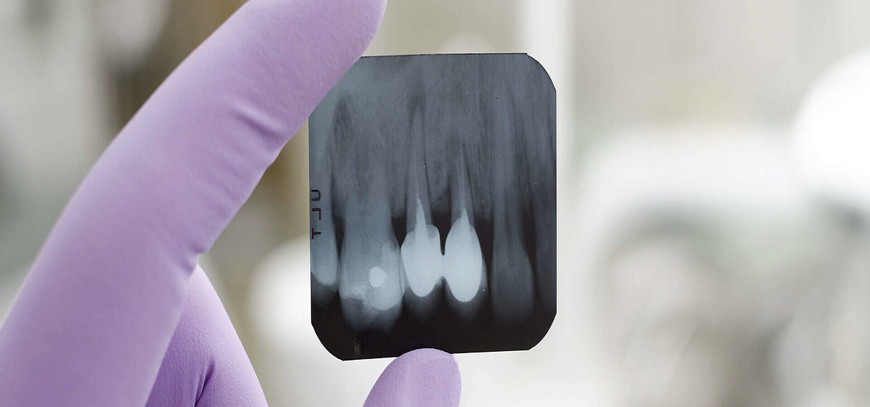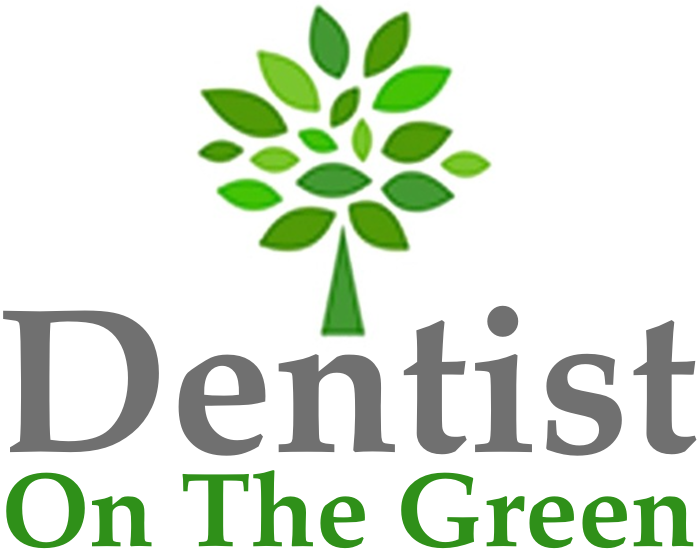Dental X-rays

Dental X-rays (radiographs) are images of your teeth that your dentist uses to evaluate your oral health. These X-rays are used with low levels of radiation to capture images of the interior of your teeth and gums. This can help your dentist to identify problems, like cavities, tooth decay, and impacted teeth.
Dental X-rays may seem complex, but they’re actually very common tools that are just as important as your teeth cleanings.
Risks of dental x-rays
While dental X-rays do involve radiation, the exposed levels are so low that they’re considered safe for children and adults. If your dentist uses digital X-rays instead of developing them on film, your risks from radiation exposure are even lower.
Our dentist will also place a lead “bib” over your chest, abdomen, and pelvic region to prevent any unnecessary radiation exposure to your vital organs. A thyroid collar may be used in the case of thyroid conditions. Children and women of childbearing age may also wear them along with the lead bib.
Pregnancy is an exception to the rule. Women who are pregnant or believe they may be pregnant should avoid all types of X-rays. Tell your dentist if you believe you are pregnant, because radiation is not considered safe for developing fetuses.
Why x-rays are performed
Dental X-rays are typically performed yearly. They can happen more often if our dentist is tracking the progress of a dental problem or treatment.
Factors affecting how often you get dental X-rays may include:
- your age
- your current oral health
- any symptoms of oral disease
- a history of gum disease (gingivitis) or tooth decay
If you’re a new patient, you’ll probably undergo dental X-rays so that we can get a clear picture of your dental health. This is especially important if you don’t have any X-rays from your previous dentist.
Children may need to have dental X-rays more often than adults because their dentists might need to monitor the growth of their adult teeth. This is important because it can help our dentist determine if baby teeth need to be pulled to prevent complications, such as adult teeth growing in behind baby teeth.
As with all dental treatment, we personalise your dentistry to meet your health needs and will make recommendations designed to keep you healthy and comfortable. According to the ADA, for most patients, yearly x-rays are enough to evaluate your teeth, bone, and gums and identify any conditions that put your oral health at risk.
If you suffer from gum disease (periodontal disease) or you have a history of losing teeth, we may recommend x-rays more frequently. Conversely, if you do not have significant dentistry or a history of tooth decay, we may be able to schedule x-rays every two years if you remain healthy.
Every patient is different, and the timelines are a generalisation based on averages. We will adjust your x-ray recall schedule to ensure you always have up-to-date information regarding your oral health.
Yes. When you first get your dentures, you will need to start with soft foods and slowly introduce harder foods as you get used to biting and chewing with the dentures in. Chew gently and take smaller bites to avoid loosening the dentures as you eat.
Digital radiography (known as digital X-ray) uses an electronic sensor instead of traditional X-ray film to capture X-ray images. The digital images are then easily stored directly to a computer. Low dose digital X-rays have a number of advantages:
Digital X-rays reduce patient radiation exposure by up to 90 percent compared to the already low exposure of traditional dental X-rays. Our dentist can instantly view and enlarge the images, allowing us to detect problems easier and point them out to you.
Digital X-rays do not require film processing, thereby eliminating the need to dispose of harmful waste products and chemicals into the environment.
